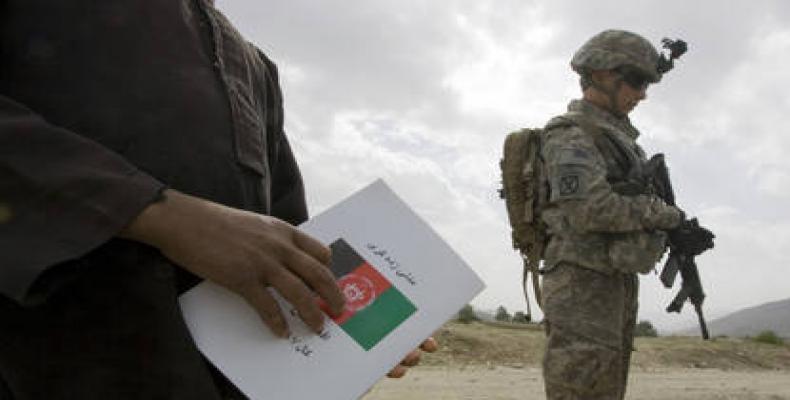Kabul, April 1 (RHC)-- The Pentagon’s one-time top propaganda producer in Afghanistan billed the U.S. government millions of dollars to produce ads it knew full well would never air, let alone win hearts and minds, a lawsuit by a company whistleblower has alleged.
The Leonie Group took in upwards of $425 million in military contracts from 2008 until 2015 to produce TV, radio and billboard ads on behalf of the U.S. in Afghanistan, knowing the lion’s share of the propaganda would never be seen by Afghan eyes, a recently-unsealed lawsuit by Scott Kreller, the company’s former president, claims. Adding insult to injury, Leonie allegedly retaliated against Kreller for trying to clamp down on the “fraud.”
Kreller claimed he was fired in February 2017 after refusing to submit an inflated $4.5 million invoice to the U.S. government for “double-billed” psychological operations despite “several months” of pressure “on an almost weekly basis” from the company’s owners.
But that final invoice was just the straw that broke the camel’s back, Kreller claims, describing how the Pentagon essentially poured money into a black hole for four years before demanding a minimum of accountability from his former employer — and even afterwards got precious little return on its investment.
Despite accepting a $120 million contract to churn out propaganda for the people of occupied Afghanistan over the 2010-2014 period, Leonie had no way to verify that any of the work it billed the Pentagon for was actually being seen by the target audience.
Only when the Pentagon ordered Leonie to begin to “monitor and verify” its ad placements in 2014 did the company even make an effort to see its work made it onto the airwaves — and even then, it didn’t try very hard, according to Kreller.
At any given time, fewer than 75 percent of the company’s TV ads and less than 45 percent of its radio ads were actually being seen by a single Afghan — and those two mediums accounted for over 95 percent of the material Washington was paying for. Kreller’s lawsuit alleges all this happened with the full knowledge and consent of the “owners, officers, managers and employees” — presumably including himself — who “knowingly submitted false bills” to the U.S. government.
While Kreller initially filed suit in the U.S. District Court of Washington DC in July 2017 under the False Claims Act, the case was only unsealed earlier this month, after the government declined to join the case. The Pentagon severed its relationship with Leonie in 2016 for reasons including, but not limited to, its mounting doubts about the company’s ability to deliver effective propaganda.
The False Claims Act allows private citizens to file suit on behalf of the government, but the government only joins in less than a quarter of such cases, according to the Justice Department.
Claiming he was told by a Leonie board member that he was fired for refusing to submit the last fraudulent invoice, Kreller is asking for double his back pay plus interest, compensation for “special damages,” reinstatement to his position, and litigation and attorneys’ fees. It’s not clear how warmly his old company will welcome him back after suing it and airing its dirty laundry, however.
In 2012, USA Today obtained an internal report revealing the Pentagon was concerned about where the hundreds of millions they were paying Leonie to win Afghan citizens’ hearts and minds was going. Not only was the company unable to provide any metrics showing success, but it had failed to pay over $4 million in taxes on the same massive contracts the Pentagon was beginning to feel conflicted about paying.
Instead of squaring with the Pentagon, Leonie’s owners launched an anonymous online smear campaign against USA Today, which was subsequently exposed. While the Pentagon briefly suspended Leonie from doing business with the government, they were quickly reinstated, with over $123 million in contracts for 2014 and 2015.
After finally ditching Leonie in 2016 for rival SOS International, the Pentagon insisted to USA Today that its propaganda programs had functional oversight and were more closely tracked. However, a request for effectiveness metrics on a pamphlet drop in Syria was met only with the comment: “That’s classified.”


